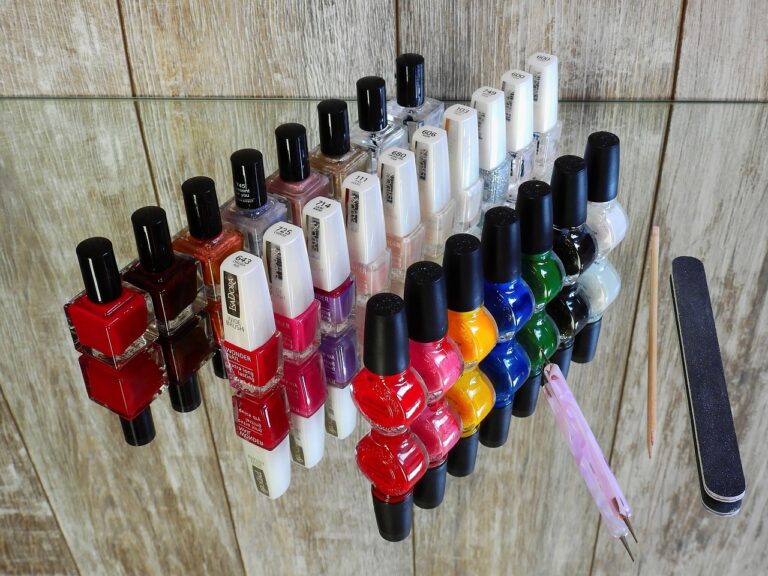Fashion Retail Strategies: Personalized Loyalty Programs: 11xplay online id, Anna reddy book, Golden7777.com admin
11xplay online id, anna reddy book, golden7777.com admin: Fashion Retail Strategies: Personalized Loyalty Programs
In the competitive world of fashion retail, brands are constantly looking for innovative ways to attract and retain customers. One strategy that has been gaining popularity in recent years is the use of personalized loyalty programs. These programs go beyond the traditional points-based system and aim to create a more personalized and engaging experience for customers.
Personalized loyalty programs are designed to reward customers for their loyalty in a way that feels unique to them. By collecting data on customers’ preferences, purchase history, and behavior, brands can tailor rewards and incentives that are relevant and appealing to each individual customer.
But what exactly are personalized loyalty programs, and how can fashion retailers implement them successfully? In this article, we’ll explore the benefits of personalized loyalty programs, best practices for implementation, and the impact they can have on customer loyalty and retention.
Understanding Personalized Loyalty Programs
Personalized loyalty programs involve leveraging customer data to create customized rewards and incentives for individual customers. Rather than offering one-size-fits-all rewards, brands use data analytics and AI technology to create personalized offers that cater to each customer’s unique preferences and shopping habits.
These programs can take many forms, from personalized discounts and exclusive offers to birthday gifts and early access to sales. By tailoring rewards to each customer, brands can create a more meaningful and engaging loyalty program that incentivizes repeat purchases and strengthens the customer-brand relationship.
Benefits of Personalized Loyalty Programs
There are several benefits to implementing personalized loyalty programs in the fashion retail industry. Some of the key advantages include:
1. Increased customer engagement: Personalized rewards and offers are more likely to capture the attention of customers and encourage them to engage with the brand. By providing incentives that are tailored to their interests, customers are more likely to participate in the loyalty program and make repeat purchases.
2. Improved customer retention: Personalized loyalty programs can help strengthen the bond between customers and the brand, leading to higher retention rates. When customers feel that a brand understands their preferences and values their loyalty, they are more likely to remain loyal and continue shopping with that brand.
3. Higher customer lifetime value: By incentivizing customers to make repeat purchases and engage with the brand on a regular basis, personalized loyalty programs can increase customer lifetime value. Customers who feel valued and appreciated are more likely to spend more money with the brand over time.
Best Practices for Implementing Personalized Loyalty Programs
When implementing personalized loyalty programs, fashion retailers should keep the following best practices in mind:
1. Collect relevant data: To create personalized offers, brands need to collect accurate and relevant data on customers’ preferences, behavior, and purchase history. This data can be gathered through customer surveys, social media interactions, and online shopping patterns.
2. Use AI technology: AI technology can help analyze customer data and predict which rewards will be most effective for each individual customer. By leveraging AI algorithms, brands can deliver personalized offers at scale and in real-time.
3. Segment customers: To ensure that rewards are tailored to each customer’s preferences, brands should segment their customer base into different groups based on factors such as shopping behavior, demographics, and purchase history.
4. Test and optimize: It’s important to continually test and optimize the loyalty program to ensure that it is driving results. Brands should monitor key performance indicators, such as customer retention rates and average order value, and make adjustments as needed.
5. Communicate effectively: Brands should clearly communicate the benefits of the loyalty program to customers and keep them informed about new offers and rewards. By maintaining regular communication, brands can keep customers engaged and motivated to participate in the program.
Impact of Personalized Loyalty Programs on Customer Loyalty and Retention
When done correctly, personalized loyalty programs can have a significant impact on customer loyalty and retention. By creating a more personalized and engaging experience for customers, brands can build stronger relationships and encourage repeat purchases.
Customers who participate in personalized loyalty programs are more likely to feel valued and appreciated by the brand. This sense of loyalty and connection can lead to higher retention rates, increased customer lifetime value, and ultimately, a more profitable and sustainable business.
FAQs
Q: Are personalized loyalty programs expensive to implement?
A: Implementing personalized loyalty programs may require an initial investment in data analytics and AI technology. However, the long-term benefits, such as increased customer retention and higher customer lifetime value, can outweigh the costs.
Q: How can brands ensure customer data privacy when implementing personalized loyalty programs?
A: Brands should prioritize customer data privacy and ensure that all data collection and processing practices comply with relevant regulations, such as GDPR. Brands should also be transparent with customers about how their data is being used and allow them to opt-out of data collection if desired.
Q: What are some examples of successful personalized loyalty programs in the fashion retail industry?
A: Some examples of successful personalized loyalty programs in the fashion retail industry include Sephora’s Beauty Insider program, which offers personalized product recommendations and exclusive offers based on customers’ beauty preferences, and Nike’s NikePlus membership program, which provides personalized training plans and rewards for loyal customers.
In conclusion, personalized loyalty programs are a powerful tool for fashion retailers looking to enhance customer loyalty and retention. By leveraging customer data and AI technology, brands can create personalized rewards and incentives that resonate with individual customers, leading to higher engagement, increased retention, and higher customer lifetime value.Implementing personalized loyalty programs requires careful planning and execution, but the long-term benefits can be well worth the investment. By prioritizing customer data privacy, segmenting customers effectively, and communicating the benefits of the program clearly, brands can create a loyalty program that drives results and strengthens the customer-brand relationship.







